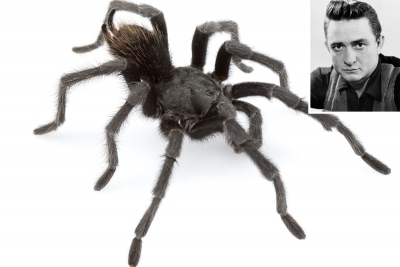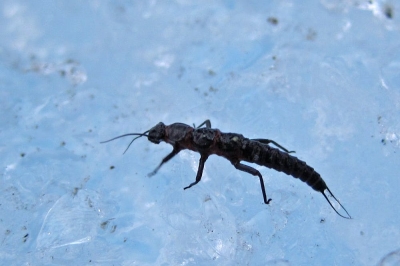New tarantula species named after singer Johnny Cash

Did you know a black tarantula has been named after legendary American singer, songwriter and actor Johnny Cash? Scientifically called "Aphonopelma johnnycashi", this tarantula was discovered in 2015 near Folsom Prison, California. It was named after Cash in honour of his song Folsom Prison Blues."
The spider doesn't sing, but it's black and can be found near the California prison that was the setting of Cash's "Folsom Prison Blues."
The researchers also collapsed the number of U.S. species from 55 to 29, including Aphonopelma johnnycashi and Aphonopelma atomicum—named, with a wink to "Tarantula" and other sci-fi B movies, because it was collected near the atom bomb test site in Nevada.
"This is unequivocally the most important work on tarantulas ever done. It sets an incredibly high standard for taxonomy which few will be able to attain," Robert Raven of Australia's Queensland Museum wrote in an email after reading the paper.
The 340-page study by biologists Chris Hamilton and Jason Bond of Auburn University and Brent Hendrixson of Millsaps College "will be referenced for many many years," Raven said.
Credit : phy.org
Picture Credit : Google
